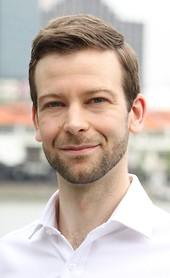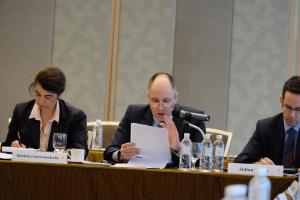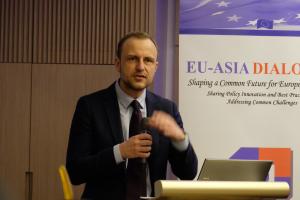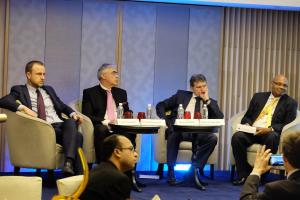Expert panel
Details
The main purpose of this conference was to tease out some of the key research questions that should be addressed when discussing the issue of terrorism and to identify possible policy actions for both Europe and Asia. In particular the enhancement of cooperation with regard to common challenges posed by groups such as the so called Islamic State was a high priority. A number of outstanding experts from different backgrounds participated in the event and were able to bridge the gap between theory and policy. Some of the most fundamental questions that were debated at the conference included the issue of foreign fighters and their threat potential when returning to their home country, prevention of radicalization amongst the youth as well as how increased cooperation can be of help in containing the impact of the events in the Middle East on Asia and Europe.
Prior to the official opening dinner, two distinguished key note speakers shared their insights and experience with the participants. Professor Peter Neumann of Kings College London focused on the most imminent terrorist threat at the moment, the so called Islamic State (IS). He introduced this topic by accentuating that the group is a (1) big, (2) enduring and (3) complex challenge. It is first of all a big challenge with regard to the numbers of fighters in its ranks and the territory it controls. Currently around 20.700 men and women from 19 different countries are part of its force in Syria and Iraq, which is a much higher number than during the 1980s, when the Mujahedeen were fighting in Afghanistan. Furthermore this time it is not only young Muslims from the Middle East and Asia joining the organization, but also around 4000 people from the West are believed to have travelled to Syria and Iraq with some countries such as Belgium showing an excep-tionally high number (relative to its population size). According to Professor Neumann, these smaller countries lack the capacities do deal with the pure volume of cases, making it a key issue to be addressed by authorities and the governments.
It is further an enduring challenge. Professor Neumann pointed out that the IS cannot be defeated purely military even though the military alliance has showed success in contain-ing the group. This is crucial as it gains its appeal by its military victories, its expansion as well as its promise of a caliphate. When the group cannot live up to these promises, it is substantially weakened. The current situation in the Middle East will be a challenge that will stick around with us for a long time, as the group is currently also making moves in Libya which will be a focus area in 2015 according to Neumann.
Lastly it is a complex challenge in the sense that there is no single profile of its fighters but there are rather a wide range of narratives and reasons for its appeal. These include the promise of a caliphate, the fast military success, the sense of a thrilling adventure as well as increasingly the fight against the West and especially the United States. These vast incentives to join the group make stopping the flow of foreign fighters even more difficult. He concluded by highlighting future areas of concern for the Europeans to work on such as the role of the family, the use of the internet and the reduction of the pool of people who are receptional to the IS-Ideology, because they feel excluded from society.
The second key note speaker, Professor Rohan Gunaratna who serves as head of the International Centre for Political Violence and Terrorism Research in Singapore, covered the current terrorist threat landscape in Asia and the implications of the rise of the IS for the region. He illustrated the importance of cooperation between Asia and Europe on the issue of counter terrorism by referring to the perpetrator who killed four people in Brussels during an attack on a Jewish museum in May 2014 and has done extensive travelling in Asia beforehand. After these introductory remarks, he spoke on the issue of foreign fighters from Asia, who are currently believed to be around 1000. He linked this to the situation in the 1980s when the fighters returning from Afghanistan founded numerous terrorist groups such as Jamaa Islamiya in Indonesia or Abu Sayyaf on the Philippines, which have carried out a substantial number of attacks since then including the bombing in Bali in 2002 and are still active today. Due to this historic experience, the current situ-ation poses a Déjà vu to many governments and raises serious concerns about the repe-tition of history in the region.
Professor Gunaratna then outlined some possible means of preparation for the potential threats connected with this development. He stressed the importance of religious rehabilitation, the need to bring together different actors and ex-ercise a community based response to terrorism. He furthermore emphasized the fact that returning fighters are building links with other terrorist groups in Southeast Asia, 22 of which have now already pledged allegiance to the Islamic State and discussed to what extend this increases the threat of terrorist attacks in the region. He assured that IS-Influence will continue to grow in the region with the number of fighters increasing as well as other groups affiliating themselves with the Islamic State. He concluded by highlighting that terrorist groups like Jamaa Islamiya were successfully diminished in the past with the help of the US, Europe and Australia and that the exchange with regional authorities played a crucial role in fighting this group. This shows what successful cooperation on counter terrorism looks like and can set an example for the future.






